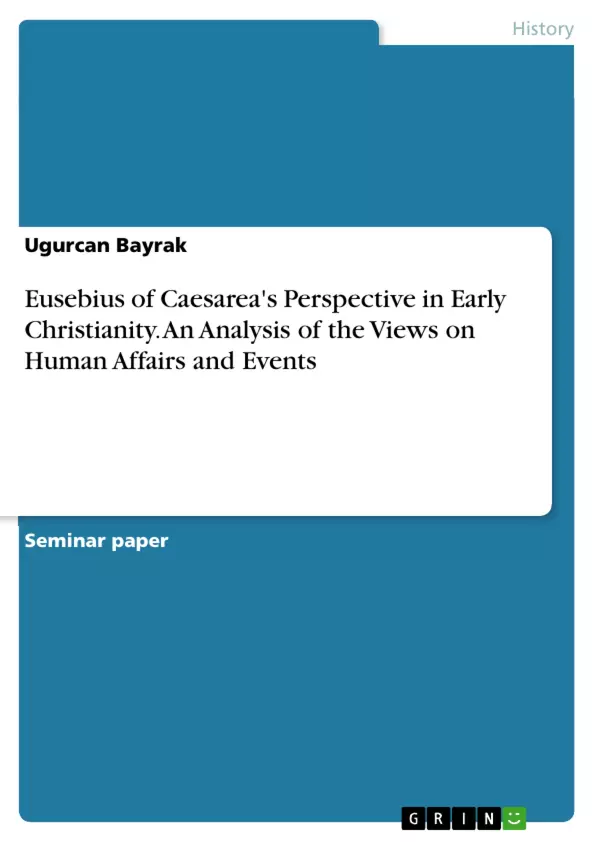The paper delves into the actions of early Christian bishops, the persecution faced by converts from paganism, and the challenges encountered in spreading Christianity. Eusebius meticulously chronicles the first 300 years of Christianity, culminating in the Edict of Milan in 313, which granted Christians religious freedom within the Roman Empire.
The introduction highlights Asia Minor's significance as a hub for early Christianity, hosting pivotal councils, influential clergy, and the genesis of Christian foundations. Eusebius' seminal work, "The Church History," serves as a crucial historical account of early Christianity, aiming to chronicle the apostolic successions and major events in Church history. Beyond mere historical narrative, Eusebius also aims to expose and critique those who deviated from orthodox beliefs, portraying them as disruptive forces within the Christian community.
Despite praising Eusebius' wisdom, the introduction acknowledges criticisms of his work, particularly regarding the lack of evidence and stylistic confusion. While Eusebius' contributions to early Christian history are invaluable, his limitations as a historian are not overlooked, providing a balanced perspective on his legacy.
Inhaltsverzeichnis (Table of Contents)
- Introduction
- Eusebius of Caesarea
- The First Council of Nicaea
- The Jews, Greeks and Pagans
- Eusebius and Paganism
- Discussion & Conclusion
- Bibliography
Zielsetzung und Themenschwerpunkte (Objectives and Key Themes)
This article examines Eusebius of Caesarea's "Church History" as a significant source for understanding early Christianity in Asia Minor. It explores the author's perspective on human affairs and events during this period, focusing on the development of the early church, the persecution of Christians, and the spread of Christianity.
- Eusebius's perspective on the history of early Christianity
- The impact of the First Council of Nicaea on early Christianity
- Eusebius's views on the relationship between Christianity and other religions
- The persecution of Christians in the Roman Empire
- The role of important clergy in the development of early Christianity
Zusammenfassung der Kapitel (Chapter Summaries)
The introduction discusses the significance of Eusebius's work, "Church History," as a primary source for the history of early Christianity in Asia Minor. It highlights the author's main purpose in writing the book, which is to provide an account of the early church, its development, and the persecution of Christians.
The second chapter focuses on Eusebius of Caesarea, a prominent figure in Church Historiography. It explores his life, his writings, and his role in the early church. Eusebius's interest in religion, his association with important clergy, and his involvement in theological studies are discussed.
Schlüsselwörter (Keywords)
Early Christianity, Eusebius of Caesarea, Church History, Asia Minor, Council of Nicaea, Paganism, Persecution, Clergy, Christianity, Roman Empire, Theological Studies.
- Citar trabajo
- Ugurcan Bayrak (Autor), 2021, Eusebius of Caesarea's Perspective in Early Christianity. An Analysis of the Views on Human Affairs and Events, Múnich, GRIN Verlag, https://www.grin.com/document/1449060



